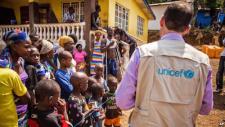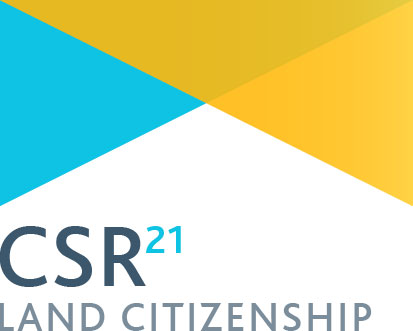
Link: Ebola Digest Wed 18 March
As 2015 rumbles on, and even as the epidemic abates somewhat, we'll continue to run these regularly for the time being - the link to the most recent edition of the regular Ebola Digest.
There's a huge amount of info in this excellent resource and we suggest you check out the source. In the meantime we've reproduced key sections of their news digest below, in the hope it may be of particular interest and use to our readers. Today's article image: "A UNICEF aid worker visits a home in Freetown, Sierra Leone."
That link again: https://eboladigest.blogspot.co.uk/2015/03/ebola-digest-wed-31815.html
- - -
Ebola Situation Report - 18 March 2015
WHO--A total of 150 new confirmed cases of Ebola virus disease (EVD) were reported in the week to 15 March, compared with 116 the previous week. There were 95 new confirmed cases reported in Guinea: the highest weekly total for the country in 2015. Sierra Leone reported 55 new confirmed cases over the same period: the country's lowest weekly total since late June 2014. Liberia reported no new confirmed cases for the third consecutive week. March 15 was day 12 since the final patient in Liberia had a second negative test for EVD (42 days must elapse before transmission can be considered to have ended).
Guinea Ebola cases rise, three doctors infected
Reuters--Guinea has suffered a setback in its fight against Ebola with a rash of new cases, including three doctors infected by the virus, with officials blaming weak surveillance and a failure to follow safety procedures. The outbreak, which began in eastern Guinea more than a year ago and has killed over 10,000 people in the three West African countries worst hit, had appeared to be on the wane, but Guinea has seen cases rise for three consecutive weeks, according to World Health Organization data.
Ebola Could Cause Thousands More Deaths — By Ushering In Measles
Wired--Awareness of Ebola is picking up again in the United States: An American volunteer who was working in Sierra Leone has contracted Ebola and been medevac'd to the National Institutes of Health Clinical Center for Ebola treatment, and 10 more volunteers have been brought back to NIH, Omaha and Atlanta, to be examined at three of the four institutions in the US that have safe units to house them.
Update on clinical status of patient with Ebola virus disease at the NIH Clinical Center
NIH--NIH physicians have changed the status of the patient with Ebola virus disease being treated at the NIH Clinical Center from serious to critical condition. No additional details about the patient are being shared at this time. NIH has no pending admissions of additional individuals with Ebola virus disease or exposed to the Ebola virus.
Monitored Health Care Worker Develops Symptoms, Moved to Biocontainment Unit
A fifth health care worker is now being monitored for Ebola symptoms in Omaha. That worker joins four others who came into contact with a patient currently being treated at the National Institutes of Health in Maryland. One of those original four who were brought here Saturday started showing symptoms, so Nebraska Medicine's biocontainment unit was activated Monday.
The biggest threat to stopping Ebola is thinking that it's over now
Washington Post--The last Ebola patient in all of Liberia was discharged from a treatment center on Thursday. And with that, the country was without a single confirmed case of the dreaded disease. This is amazing. A few months ago, Ebola threatened to overwhelm the nation. Now, even though Ebola still exists in neighboring Sierra Leone and Guinea, Liberia is counting the days until it can be considered Ebola-free. That officially comes on April 4. Already, the celebrations have begun.
Another four US Ebola aid workers flown back to US for monitoring
Reuters--Another four U.S. healthcare workers were flown back to the United States for monitoring for possible exposure to the Ebola virus, U.S. Centers for Disease Control and Prevention said on Tuesday. The return of the four U.S. healthcare workers brings to 16 the number of Americans who have returned to the United States from Sierra Leone since Friday, the CDC said.
COUNTERMEASURES
Emergent announces human trial for boosted Ebola vaccine
CIDRAP--Emergent BioSolutions announced yesterday that it has signed an agreement to produce an Ebola vaccine candidate that contains a booster in the form of a modified virus, with a phase 1 trial to launch soon in the United Kingdom. Meanwhile, in news regarding health workers in the outbreak region, a Cuban medical team that was one of the first to volunteer announced that it is departing Liberia, and another worker potentially exposed to the virus in Sierra Leone arrived in Nebraska for monitoring.
LESSONS LEARNED
The Next Epidemic — Lessons from Ebola
NEJM--Perhaps the only good news from the tragic Ebola epidemic in Guinea, Sierra Leone, and Liberia is that it may serve as a wake-up call: we must prepare for future epidemics of diseases that may spread more effectively than Ebola. There is a significant chance that an epidemic of a substantially more infectious disease will occur sometime in the next 20 years; after all, we saw major epidemics during the 20th century, including the Spanish influenza epidemic of 1918–1919 and the ongoing pandemic of human immunodeficiency virus. In fact, of all the things that could kill more than 10 million people around the world, the most likely is an epidemic stemming from either natural causes or bioterrorism.
Caring for Patients With Ebola Virus in the Nebraska Biocontainment Unit
he Nebraska Biocontainment Unit (NBU), the largest high-level isolation unit in the United States, was established in 2005 by Nebraska Medicine, the University of Nebraska Medical Center, and the Nebraska Department of Health and Human Services. Designed for care of highly contagious patients—whether infected from an act of bioterrorism, an emerging infectious disease, or a laboratory accident—the NBU is equipped with a host of critical infection control features such as controlled air flow (negative pressurized patient rooms with HEPA-filtered exhaust air), an in-unit Bio-Safety Level 3 (BSL-3) laboratory, secured unit access, staff shower-out access, and a pass-through autoclave.
Ebola diaries: First signals - March 2014
WHO--Dr Pierre Formenty has spent the past 20 years investigating communicable disease outbreaks, including many Ebola outbreaks. In mid-March 2014, while in Kinshasa, training health care workers to safely take and dispatch blood samples that may contain 'dangerous pathogens' such as Ebola virus, he began receiving emails that got him worried. They described a cluster of cases in Guinea thought to be caused by Lassa virus. But features of the cases and how they occurred made him very concerned that this was not, in fact Lassa fever but possibly Ebola virus disease. Here Dr Formenty describes what it was like to realize that Ebola Zaire had arrived for the first time in the heart of West Africa.
REGIONAL SURVEILLANCE
Guinea
Guinea finalizes plan to eradicate Ebola by April 15
Guinea's authorities in charge of eradication of Ebola epidemic are putting final touches on an interim plan to end the disease by April 15, 2015, an official source has said. This is after the initial plan dubbed "Zero Ebola in 60 days," that elapsed on March 10, 2015 failed to yield the desired results. Fode Tass Sylla, head of communication for the national body charged with fighting Ebola said Sunday the interim plan aims to reinforce the intervention teams in Conakry and neighboring prefectures such as Coyah, Dubreka, Boffa, Kindia and Forecariah.
Sierra Leone
Sierra Leone: How Ebola Fools Even the Experts
NBC News--Everyone knew the three-year-old boy was at high risk. His mother had died from Ebola and the young children of victims are very likely to catch the virus. So the local Sierra Leonean officials, backed up by a Centers for Disease Control and Prevention team, checked the family daily. "We were trying to get these family members to tell us things like whether they had a headache or muscle ache," said Beth Ervin, one of the CDC epidemiologists working in the village. She's one of an estimated 150 Americans working for the U.S. government or nonprofit groups to help the country fight an epidemic that's infected more than 24,000 people and killed more than 10,000 of them.
Sierra Leone plans another 3-day shutdown to stop Ebola's spread
Sierra Leone is planning another three-day, countrywide shutdown March 27 through 29 to ferret out Ebola cases, remind people how to protect themselves from the disease and control its transmission. The West Africa Ebola outbreak that has killed more than 10,000 people is declining but the disease has remained stubbornly entrenched in parts of Guinea and Sierra Leone. Liberia, the third country severely affected, currently has no Ebola cases.





